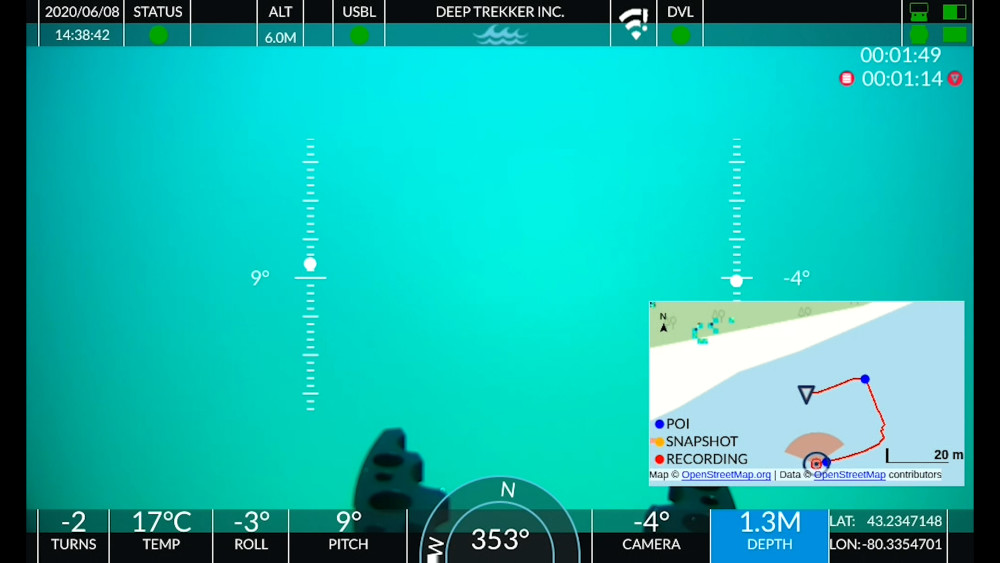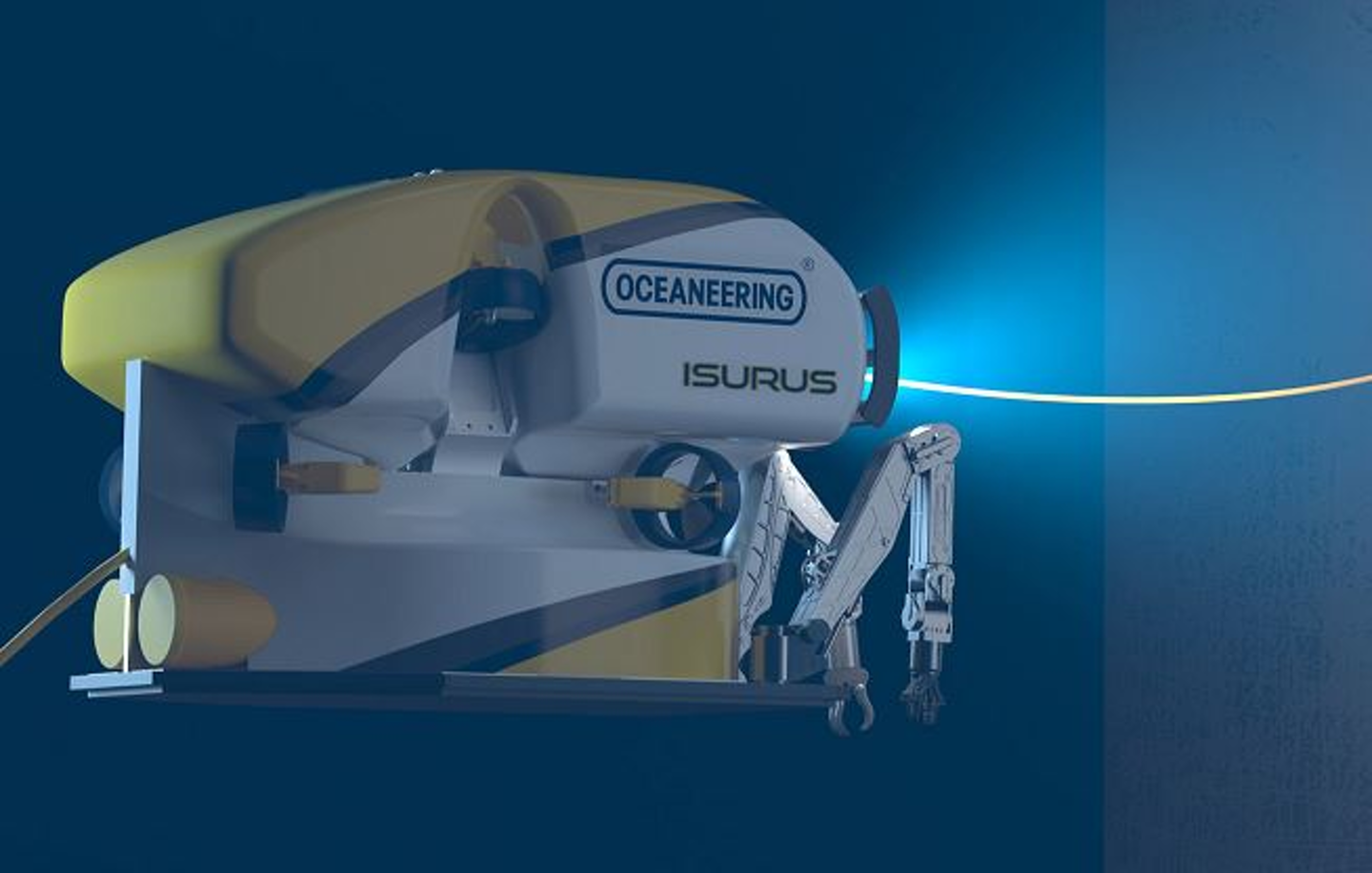Home › Forums › General › General Board › ROV Training Schools & industry regulation
- This topic has 4 replies, 5 voices, and was last updated 15 years, 8 months ago by
James McLauchlan.
-
AuthorPosts
-
November 10, 2008 at 10:13 pm #1941
rover22
ParticipantHi all,
Here is some meat for the pack, I am sure it will get some feedback and comments.
Over the last year or so, I have had many trainees on the teams with me who have ROV School ROV Pilot/Technician Grade II certificates with an IMCA logo and IMCA-Member company listed below the logo.
In fewer and fewer cases, are the trainees compliant with IMCA guidelines for the Entry Level Requirements for ROV Personnel (IMCA R002 Rev 1). Fewer seem to have actual technical or trade qualifications and backgrounds, while more and more have only a three-week ROV course and some NVQ 3 City & Guilds certificates. When working with them, invariably it is the guys with military technical training or some form of trade behind them that get stuck in and are useful very quickly (in most cases, show them how to launch and recover and guide the flying as they learn and gain confidence and learn the tricks) whereas the non-technical ones (those with city & guilds NQF 3 certs) require a lot of attention and take far longer to become useful technically (if ever in some cases).
My point is that it seems that a lot of trainees from training schools met the entry requirement of paying a course fee and then making up for a lack of technical training/experience/qualifications by doing add-on 5-day city & guild NQF Level 3 courses, but failed to meet the established entry level requirements to become ROV Pilot/Technicians in the first place.
Another issue I have is when training schools send a student off as a Pilot/Tech II with all 10 competencies signed in the logbook. I understand from IMCA (and I have confirmed this with IMCA) that these must be signed off in the first year in industry during a minimum of 6-months offshore service.
I believe that industry (client and operator companies) should insist that IMCA audit and approve training schools so that there is some form of check over the quality of training and adherence to acceptance of students for the course. The dive schools do this already, so why not the ROV schools? I think, and it is my opinion only, that this would go some way to solving some problems (non-technical ROV trainee personnel in the industry, course delegates without work because they lack technical backgrounds etc).
Comments anybody?
November 10, 2008 at 11:52 pm #20187Kiwitech
ParticipantA view from someone not working off shore
I have been working as an Electronics technician for last 20 years having come up thru the old NZ apprenticeship system. I spent 10 years working in the “brown goods” repair industry and now have been working as a Marine Electronics Technician these last 9 years.
I have seen a lot of trainees come and go, (I have had to hold their hands and try to make them into technicians) now some have all the Qualifications in the world but cannot even select the replacement parts or read schematics / manuals, (I’m talking resistor value color code / finding transistor equivalents.) Current trainee has University Degree and is in fact far more qualified than me but I had to teach him how to solder!!! And after 12months helping him as much as possible I don’t think he is going to make the grade long term. His theory is superb but practical application is just not there.
I much prefer teaching trainees straight from school with no qualifications but that I don’t have to teach how to use hand tools and don’t balk at having to repair the Hydraulic System bit of autopilot systems instead of tossing their toys out of their cot cause its not electronics. And who complete the theory as they learn the practical
To all you trainees out there, and I will be one again too somewhere soon, give it everything but there is no shortage for practical skills you cannot just learn these in 3 weeks. I have seen lots of people asking on this site if they really need “electronics” or “hydraulics” skills. Well the short answer I think is yes and practical skills not theoryI suspect the shortage of trained staff is not just an “Offshore Industry” issue. My employer cannot get qualified staff for love nor money. Now they have decided they do not want to train trainees as they don’t want the hassles associated with it. It does not bode well especially with increasing workloads all our current staff are just told to work harder. For me it has ment being on call 24/7 for last 12 months and when I ask why the reasons are “can’t find qualified staff” but “don’t worry it will get better soon. Hell I stopped working Offshore when I got married so I could have a life but now am wondering is this is life (work 24/7 salary so no overtime) I must be missing something
(Although I am not currently working Offshore and have not since 1998 I am considering returning, so I expect after a long absence I will again be the “dreaded trainee.)November 10, 2008 at 11:57 pm #20188Ray Shields
ParticipantIMCA do not and say they will not certify any training schools.
All they do is produce a standard (or a series of standards), the training schools say they train people to that standard and issue certificates saying that they have trained a person and assessed them to the relevant IMCA standard.
I think that IMCAs existing standards are too low. Take Piloting skills for example (R/R04/000/0404).
Knowledge – capable of navigating an ROV to the worksite in normal environmental conditions & demonstrates familiarity with ROV controls.
Demonstration – demonstrating spatial awareness of umbilical positions, turns and loads on three occasions. demonstrate the function of standard ROV controls and can demonstrate their use in navigating an ROV.Some training schools have small eyeballs, so as long as you fly it three times and dont get lost, they sign you off as having completed this competency! What does that do, oh that dims the lights, yup, thats thay competency signed off as well. Thats it, you can fly after a few hours on a smnall basic vehicle working in shallow, pierside simple environment.
Ultimately, I feel it is IMCAs responsibility to up their standards and to ensure that any training school who wants to use and train and sign off their competencies SHOULD be approved and inspected by IMCA.
And IMCA is a trade association of offshore companies.
So its up to the Companies to up the standards – but they are the ones accepting these current standards.
So I doubt it will change 🙂
November 11, 2008 at 12:10 am #20189marley
ParticipantI have done a little looking into some of these ROV schools. Turns out that most are nothing more than a general overview and a look at an rov, then its just write out the check and your off to the races. Well I did find one training course that seems to be worth the while.
The school is located in Newfoundland, Canada at the Marine Institute.
It is a 9 month program and the entry requirements are that you must have a diploma or degree in either electronics or electro-mechanical engineering to be considered for a seat. I didnt attend the program so I cant judge personally but I have worked with some of the grads and they seem to be OK. A scatter one think that they are god give to roving but that gets straightened out pretty quick offshore.November 11, 2008 at 9:08 am #20190James McLauchlan
ParticipantI fail to see the point of the IMCA setting out standards if there is not proactive enforcement of them. Right now it seems (for operational or cost reasons) that companies (whether they be operators or training schools) adhere to the bits that suit them and skip over stuff that doesn’t. With no policing of the system who cares?
On the training front you end up with what we have now… schools saying they train to IMCA guidelines/standards and nobody to check on whether they are doing so.
Or trainees having competencies checked off, which should only happen in conjunction with offshore time served, when they haven’t even seen the ocean from any other than the deck of a ferry at some point in their life.It appears that the industry is not very good at self regulation in this respect.
Change is required and with people highlighting the issues, and bringing them to the the notice of the rest of the industry, it may change.
Even debates like this must be picked up on from time to time by those that have a strong say in the matter. -
AuthorPosts
- You must be logged in to reply to this topic.



